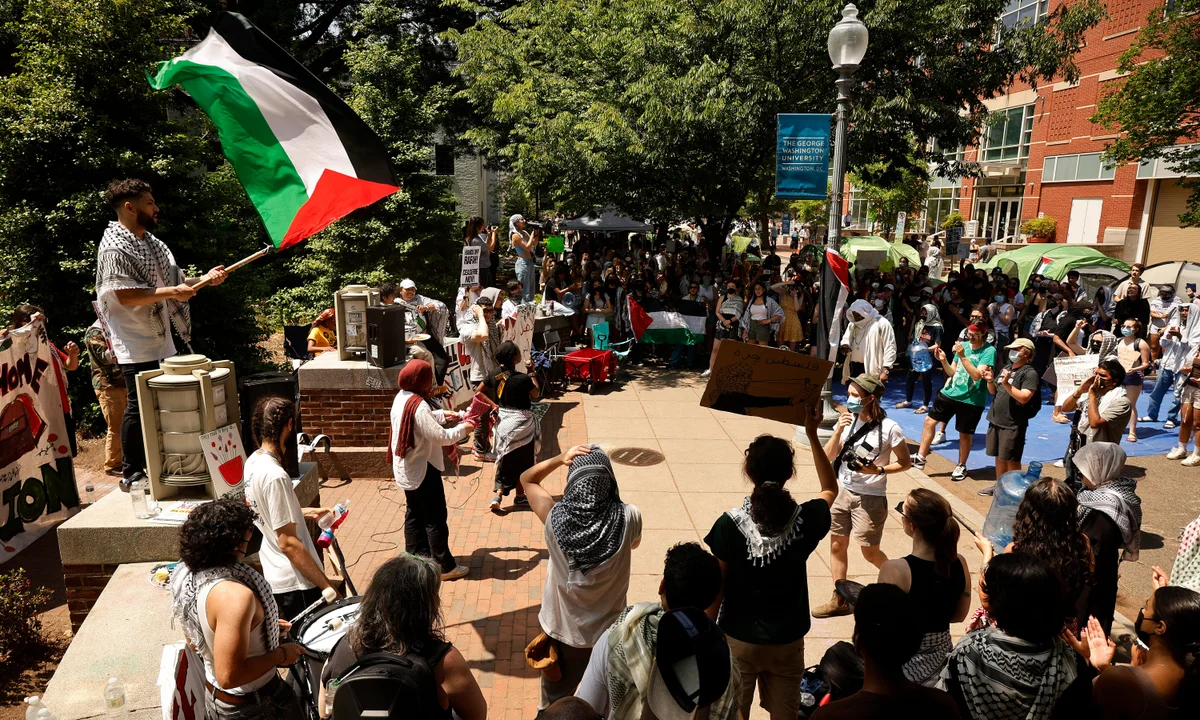Presumptive Republican presidential nominee and former President Donald Trump has threatened to cut federal school funding if reelected to the White House.
Trump proposed a 20-point Republican National Convention platform, and one of its bullet points calls to “cut federal funding for any school pushing critical race theory, radical gender ideology, and other inappropriate racial, sexual or political content.”
The RNC called Trump’s platform a “pro-American agenda that stands in stark contrast to the record of weakness, failure, and dishonesty created by [President] Joe Biden” in a new release.
“President Trump’s 2024 Republican Party Platform articulates his vision to Make America Great Again in a way that is concise and digestible for every voter,” Trump campaign senior advisers Chris LaCivita and Susie Wiles said in a statement. “While Joe Biden and Democrats argue about who will be at the top of their ticket and have implemented policies that have raised prices on everyday families, opened the floodgates to migrant crime via wide-open borders, shackled American energy with red tape forced by Washington bureaucrats, and sewn chaos across the world through weak foreign policy, President Trump will Make America Great Again through these America First principles.”
The platform statement also claimed the United States stands in a time of “serious decline,” saying: “Our future, our identity, and our very way of life are under threat like never before.”
The GOP platform also called to seal the border and stop migrants from moving into the United States and carry out the “largest deportation operation in American history.” Trump also sought to end inflation and implement tax cuts for American workers.
In a similar vein to ending funding for schools who teach “radical gender ideology,” the platform said Trump seeks to “keep men out of women’s sports,” which likely would prevent transgender women from competing against women who were born female.
On the campaign trail, Trump has made many vows about the state of education. He threatened to shut down the Department of Education and supported a Louisiana law that would mandate displaying the Ten Commandments in public schools.
Louisiana is also among many states that have proposed laws that would ban teachers from instructing concepts around white privilege and racial equity, alongside Idaho, Tennessee and others.
Critical race theory emerged in the 1970s and 1980s by academics as a way to learn about and discuss the way racism appears in everyday situations.
This isn’t the first time Trump has come out against the ideology. In 2020, the former president issued an executive order calling for federal contractors to end any racial sensitivity training.
At the moment, his memo advised to stop funding for training that suggests “the United States is an inherently racist or evil country or that any race or ethnicity is inherently racist or evil.”
His call to cut school funding will likely face staunch backlash from teachers and Democrats.
Trump has faced his fair share of legal issues since serving his presidential term. He was the first former president in U.S. history to be criminally convicted after being found guilty of 34 felony counts in his hush money trial, which focused on a $130,000 payment made to porn star Stormy Daniels during Trump’s 2016 campaign.
The former president was also charged last year by Special Counsel Jack Smith, accused of conspiring to overturn the results of the 2020 election that he lost to Biden. In June 2023, Trump was charged in the mishandling of classified documents retrieved from his Mar-a-Lago home after leaving the White House. He also faces an indictment in Georgia, accused in attempts to overturn his 2020 election loss to Biden in the state.
Another legal hurdle concerned sexual assault in a fitting room. Trump was found liable for sexually assaulting magazine columnist E. Jean Carroll in a New York City department store dressing room in the 1990s. Trump was also accused of defamation when he denied Carroll’s allegations.
William Hall, political science and business professor at Webster University, said Trump would likely support the policy to defund schools teaching these ideologies if reelected, but the impact is not yet clear.
“Historically, in the United States, federal funding has typically not been a major source of funding for education in the public schools, especially at the elementary or secondary levels of schooling,” Hall told Newsweek. “It is doubtful, that even if funding were cut at some affected schools, it would not necessarily be significant, in terms of the school district’s ability to fund its educational programs.”
Most public schools are funded through local property taxes, with state and federal funding making up only a small percentage of the money. And there’d likely be pushback by a large majority of educators.
Hall said the pushback “would be both swift and substantial, especially at this critical time when research has shown that quality and academic performance of public education, particularly at the elementary and secondary levels, has been falling behind other nations.”




